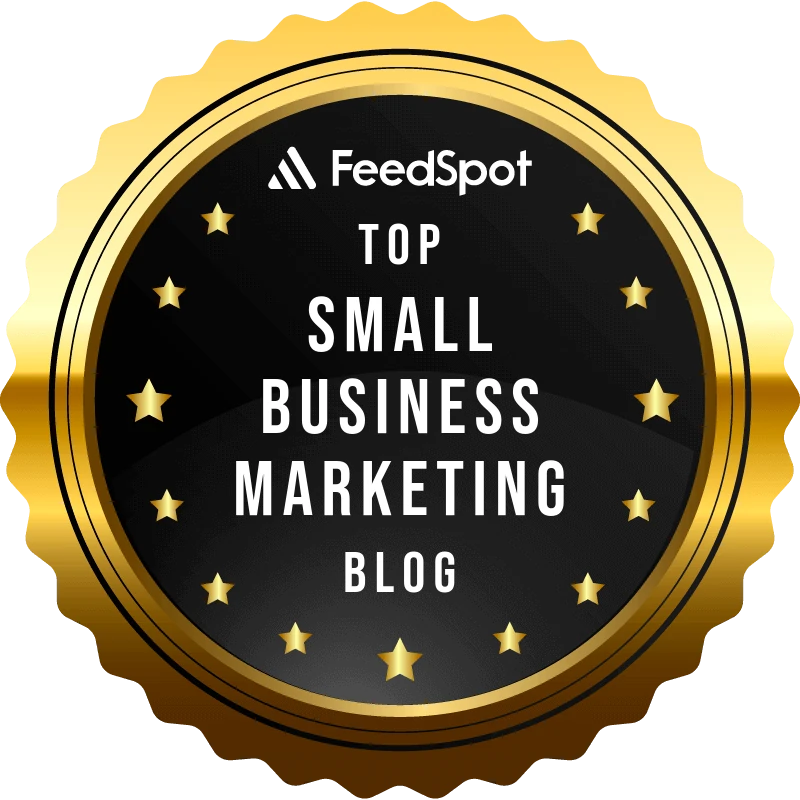
Demystifying SEO: How to track SEO and understand the results
The world of SEO (Search Engine Optimisation) can be overwhelming. SEO is how you attract visitors to your website from search engines. It can include both organic (free) methods and analyzing metrics related to your website’s content and usability.
With so many SEO tactics to drive traffic to your site and even more metrics to measure the user experience on your website, where do you start?
In this article, we’ll help you decide which Search Engine Optimization metrics are the most important to track, what they actually mean, and how to improve your results.
Fundamental SEO metrics you should be tracking
With so many metrics available, how do you prioritize which SEO metrics are most important for your business? Here are the top five fundamental SEO key performance indicators you should be monitoring.
Organic traffic
Organic traffic refers to visitors who find your website on a search engine like Google. It’s a good overall metric to learn how well your website appeals to your target audience and how well you have optimized your website for search engines.
Keyword rankings
Your placement in search engine results pages is in part based on your choice and application of the right SEO keywords on your website. If you choose the right SEO website keyword phrases and use those phrases in all the right places, your site may show up higher in search results.
As rankings change over time, regularly monitor your ranking for each primary page of your website and do an SEO audit if you see a drop in ranking.
Clicks
SEO is not just about being the top result on Google, it’s about getting people to click on your link. That’s why monitoring your Click Through Rate (CTR) is crucial. It’s the key to understanding how many people are actually visiting your website.
Measuring your CTR can help you understand how effectively your keywords perform to meet your visitors’ needs. This also includes using those keywords in your meta title and description (the short title and description representing your website in search result pages).
Conversion rate
While clicks to your website are important, ultimately, you want to make sales! Measure the percentage of people who meet your goals (making a purchase, downloading a freebie, contacting you, signing up for your newsletter… etc.) vs. the total number of clicks you get.
Higher conversion rates directly relate to how effectively your description represents your landing page and how well your landing page is optimized for your visitors.
Backlinks
Third-party endorsements of your website are GOLD in the eyes of Google. In marketing-land, we call these links “backlinks.” Backlinks are links that point from one website to another, for example, our blog is located on the Forbes website. When another website adds a hyperlink to your website, you may get a boost in your search rankings, especially if the link is from a reputable and relevant site.
Other essential Search Engine Optimization marketing metrics to track
Analytics can provide great detail about your customers and how well your digital marketing works. However, your analytics will fluctuate daily, so looking at them too often may be overwhelming and lead to false impressions of your actual performance.
Instead, look at your SEO metrics and the trends they show:
- Is the metric increasing or decreasing over several weeks or months?
- Is the metric staying the same with little to no movement?
- Can you discern any patterns? (like higher sales on the last day of the month or increased web traffic around product launches)
In addition to your fundamental SEO metrics, when you’re ready to dig deeper and learn more about your customers, begin tracking and analyzing these metrics:
| Metric | What it measures | How to improve |
| Organic Conversions | The percentage of visitors who arrive on your website via | Ensure your page has clear goals (sign-ups, buy now buttons). |
| Cost per Conversion | For paid ads, look at how much you spent to acquire a lead in your campaigns. To calculate this, divide the number of conversions attributed to a campaign source by the amount of money you spent. | Try different ad text and images, and optimize landing pages to be conversion-focused. |
| Overall Conversion Rate | The percentage of visitors (from any source) who complete your goal action. | Make sure call-to-action links are clearly and prominently placed on your landing pages. |
| Page load time | How quickly your page loads. Slower loading pages create a bad experience for the user, and they may abandon your site. The average page load time is 2.5 seconds. | Upload smaller image sizes and minimize, caching or compressing unnecessary website plugins. |
| Interactivity and usability of your website | This includes other core website vitals that relate to how user-friendly your website is and may include the number of pages visited in a single session and broken links. | Check and remove any broken links, and do user testing to see where visitors struggle to navigate your website. |
| Indexed Pages | A list of all the pages Googlebot crawled or visited is stored in the Google Index. | Look at your Google Search Console to get a list of all pages Google has indexed, and manually ask Google to add any new pages. |
| Bounce Rate | This refers to visitors who only view one page on your site. A 100% bounce rate is bad because it means every visitor views only one page and leaves. | Ensure meta titles and descriptions match page content and intent. (Note: An optimal bounce rate is anywhere between 26-40%) |
| Referral Traffic | Details about the referral source (the page they visited before clicking to your website). | Look for other reputable websites and ask if they’ll link back to you in a blog post or other site page. |
| Time on site | How long visitors stay on your website. | Keep visitors longer by publishing well-written, helpful content and using internal links (links to other pages on your website) to keep them engaged longer. |
Tools to support your SEO success
Creating a successful online presence and SEO strategy will be difficult without tools like the ones listed below. Review your metrics regularly to look for trends and patterns, then change your website and content to optimize your results.
At Out-Smarts, we utilize many SEO tools for our clients. We’ve either personally used the tool recommendations below or have colleagues or clients who rave about them.
- Google Search Console: This tool provides valuable insights to help you debug your website, including tracking clicks, the average position for your chosen keywords, and more.
- Google Analytics: Probably the most comprehensive and detailed website analytics platform, Google Analytics provides user behaviour metrics (clicks, conversions, goal tracking…etc.) and core website vitals (page loading time, bounce rate, and broken links…etc.)
- Google Keyword Planner: Find the best keywords based on how many people search for those words and how many other people are bidding on those keywords to display their ads higher in search results.
- Ahrefs: This site is helpful in analyzing your backlinks and providing insights into your competitors’ SEO strategies.
- Bing Webmaster Tools: This platform, specifically aimed at the Bing search engine, provides analytics and SEO tools for your site’s performance on this search engine.
- Google PageSpeed Insights: Discover website vitals that impact SEO performance using this free tool from Google.
- Google Mobile-Friendly Test: Learn how your website performs when viewed on a mobile device (Search engines favour mobile-friendly sites, so it can help your ranking)
- SEO Powersuite Rank Tracker: This tool supports various SEO analytics, including tracking your keyword position in search engines.
- Screaming Frog: This auditing tool crawls every page of your site and helps you optimize meta titles and descriptions, keywords, and broken links, among other features.
- Moz: Offers educational resources and tools for keyword tracking, backlink analysis, and other valuable SEO metrics.
- Semrush: A comprehensive tool for tracking keyword rankings, competitor analysis, and providing suggestions to boost organic traffic.
Another tool to have in your SEO toolbox is a marketing and SEO team! Out-Smarts Marketing provides SEO strategy, audits, and roadmaps to help you track (and understand) your SEO success.
Book a 15-minute complimentary consultation to see how we can help you.
Read more articles:


